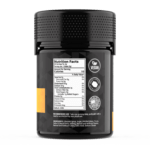
Is Weed Delivery Legal in Massachusetts
The cannabis industry has experienced a seismic shift in recent years, with the United States witnessing a gradual relaxation of marijuana laws. One of the notable changes is the emergence of marijuana delivery services. In this article, we will explore the question, “Is weed delivery legal in Massachusetts?” and delve into the various aspects of this burgeoning industry. Understanding the legal framework surrounding cannabis delivery in the Bay State is crucial, especially given the evolving landscape of marijuana laws.
This post is intended as information and for general knowledge only. It is not a substitute for medical advice, diagnosis, or treatment. It is recommended that you talk to a healthcare professional about this before introducing cannabinoids into your daily routine (especially if you have been diagnosed with any medical conditions or are under any medication). It is not recommended to drive or operate any machinery when using cannabis- or hemp-derived products. Use responsibly!
Massachusetts Cannabis Laws
To comprehend the current status of weed delivery in Massachusetts, it’s essential to grasp the state’s journey towards cannabis legalization. Massachusetts has been at the forefront of cannabis reform, decriminalizing marijuana possession in 2008 and subsequently introducing medical marijuana in 2012. The state later transitioned to full recreational legalization in 2016, allowing individuals aged 21 years and older to possess and use marijuana.
The Massachusetts Cannabis Control Commission (CCC) plays a pivotal role in regulating the cannabis industry within the state. This regulatory body oversees all aspects of the marijuana establishment, from licensing and compliance to ensuring the safety and security of the cannabis product.
However, it’s crucial to note that despite the state’s progressive stance on cannabis, marijuana remains illegal under federal law. This ongoing conflict between state and federal laws creates unique challenges for the cannabis industry, including delivery operators.
In recent years, Massachusetts has continued to refine its marijuana laws through legislative changes and updates. Staying informed about these changes is essential for businesses and individuals operating in the cannabis industry.
Retail Marijuana Delivery License
A retail marijuana delivery license is the key to legally providing cannabis delivery services in Massachusetts. To obtain this license, businesses and individuals must meet specific eligibility criteria. These criteria often include background checks to ensure the integrity and reliability of those seeking a delivery license.
The application process for obtaining a delivery license can be complex, involving various requirements and documentation. A step-by-step guide can help potential delivery operators navigate this process successfully.
While holding a delivery license offers lucrative opportunities, it comes with strict restrictions and requirements. Delivery operators must adhere to security and transportation standards, including maintaining the safety of marijuana products during transit. Failure to comply with these regulations can result in severe penalties.
Types of Marijuana Delivery Services
There are two primary types of marijuana delivery services in Massachusetts: retail delivery and courier delivery. Retail delivery involves directly delivering marijuana products from licensed dispensaries to consumers. In contrast, courier delivery services are third-party transportation providers responsible for delivering products to consumers on behalf of dispensaries.
The distinction between these two types of services is essential as they have different licensing and regulatory requirements. Consumers also experience differences in how they interact with these services, from placing orders to receiving deliveries.
Many delivery services collaborate with dispensaries to ensure a seamless and compliant operation. Compliance with delivery windows and tracking systems is critical to meet the requirements of the law and maintain consumer trust.
Geographic Restrictions

Geographic restrictions on marijuana delivery services vary across municipalities in Massachusetts. Some towns and cities opt in, allowing delivery services to operate freely, while others opt out, prohibiting such services within their jurisdiction. This variation creates both challenges and opportunities for delivery operators.
In certain areas, “delivery-only” municipalities have emerged, playing a vital role in the marijuana delivery landscape. Navigating local ordinances can be a complex endeavor for businesses, making it essential to understand and respect the regulations specific to each region.
Case studies of towns with specific regulations can provide valuable insights into the complexities of operating within a patchwork of local laws. Strategies for businesses to adapt to and thrive in different regions are crucial for long-term success.
Age and Identification Requirements
In Massachusetts, strict age restrictions apply to marijuana delivery customers. To purchase and receive deliveries of marijuana products, individuals must be at least 21 years old. Valid forms of identification, such as driver’s licenses or state-issued IDs, are required to verify the customer’s age.
Delivery services employ various verification processes to ensure the accuracy of the provided identification. Attempting to deceive delivery services by providing false identification can result in legal consequences for customers.
Product Limits and Packaging
Massachusetts imposes maximum limits on the quantity of marijuana products that can be delivered to individual consumers. Additionally, there are restrictions on THC content and the types of products that can be delivered. These regulations are in place to ensure the safety and responsible consumption of marijuana products.
Packaging and labeling requirements are stringent, with an emphasis on child-resistant packaging and clear warning labels. Compliance with state-specific packaging regulations is essential to protect consumers and prevent accidental ingestion, especially by children.
The importance of keeping products secure during delivery cannot be overstated, as ensuring the integrity of the product is paramount to maintaining its quality and safety.
Taxes and Fees
When it comes to marijuana delivery, taxes and fees play a significant role in the overall cost of products. Massachusetts levies a state excise tax and sales tax on marijuana purchases. Additionally, municipalities have the authority to impose local option taxes, further increasing the variability in tax rates across the state.
Understanding the local option tax system and its impact on pricing is crucialfor consumers and delivery services alike. In some cases, additional fees may apply, such as delivery service fees or packaging and handling fees. These fees can vary between delivery operators, so consumers should be aware of the total cost when placing orders.
Delivery Hours and Restrictions
The hours during which marijuana products can be delivered are subject to state regulations. Delivery services must adhere to specific timeframes, including weekends and holidays. Moreover, restrictions exist on delivery locations, particularly concerning proximity to schools and other sensitive areas.
Zoning regulations play a significant role in determining where delivery services can operate. To ensure compliance with these regulations, delivery services often employ tracking technology and establish training protocols for delivery drivers.
Tips for Customers
For customers considering ordering marijuana delivery, responsible consumption is paramount. Staying within legal limits and verifying the legitimacy of delivery services are essential practices. Education about safe marijuana use, including understanding dosage and effects, is crucial for a positive and safe experience.
Supporting legal, licensed delivery services is not only responsible but also contributes to the growth of a regulated and safe cannabis industry. Reporting illegal or unlicensed delivery services helps maintain the integrity of the market and ensures consumer safety.
Conclusion
In conclusion, the question of whether weed delivery is legal in Massachusetts is met with a resounding yes, provided that all relevant laws and regulations are followed. Understanding the complex landscape of marijuana laws and regulations in the state is crucial for both businesses and consumers.
As Massachusetts continues to refine and evolve its marijuana laws, staying informed about the latest developments is essential. The cannabis industry in the Bay State has the potential to generate significant tax revenue, promote good health, and serve medical marijuana patients while providing recreational cannabis users with safe and legal access to their desired products. Adhering to state laws and regulations is the key to ensuring the success and sustainability of the marijuana delivery industry in Massachusetts.















